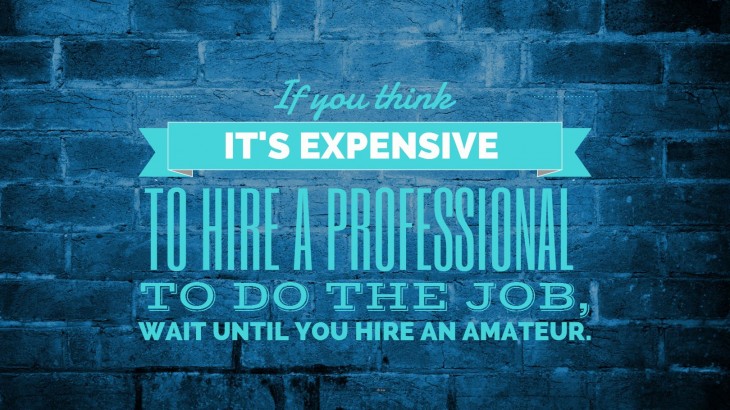When I hear that companies avoid using recruitment agencies due to the excessive recruiters fees, it makes me wonder, why? I also wonder what they would feel comfortable paying, or more to the point, how little they know about what recruiters actually do to warrant charging that amount of money.
Recruiter’s fees in brief.
Most agencies only charge a fee upon a successful placement. This fee is usually a percentage of anything from 10-30% of the candidates starting basic salary. Having worked in commercial recruitment now for several years, I’d say 15% is the typical percentage an agency would charge for your average job role. The equivalent would be slightly less than 2 months’ salary of that candidate. Sounds a lot I hear you say? The thing is, recruitment agencies do much more than send a couple of CV’s followed by an invoice.
So how is the fee justified?
A fair question which deserves a fair answer. Charging a client thousands of pounds for merely providing an introduction to a candidate does seem absurd, and, for those outside the process it does appear to be an extortionate amount of money for what seems like a very small amount of work. Think again.
What you get for your money. The recruiters expert knowledge of the industry, their extensive network to find the best fits for the role, and their management skills to ensure a smooth and easy process, up to and including ensuring the candidate turns up to work on their first day.
When a company decides to instruct a recruitment agency, the client has already started getting their money’s worth, after all they aren’t just paying for a few CV’s. There is substantial amount of work the recruiter has to put in in order to successfully fill that vacancy. Let’s not forget that the recruiter’s fee is comprised of two separate charges; a charge for the time, expertise and effort put into the role, and a charge for the risk the agency accepts under a contingency model.
From the moment a recruiter receives a job, the work begins. From sourcing suitable candidates, making hundreds of calls, Identifying available candidates, explaining the role over and over again, taking time to meet and register candidates, prequalifying and assessing as well as personality profiling them, all to ensure a successful placement. This process takes a lot of time and is one of the main reasons a company would benefit from using agencies. It doesn’t stop there. There are a number of risks involved for the recruiter, they often work a large number of roles at once, some not even resulting in a fee. Many companies decide to instruct more than one agency at a time, meaning the recruiter is facing competition and a chance they might not make a fee at all. There is a very high likelihood that the time and effort a recruiter puts into a role will not result in a fee and placement, then it makes sense that a recruiter has to charge a higher fee for a successful placement – simply because most of their work will not result in a fee.
Conclusion
So, whilst an individual fee for a successful placement may seem excessively high, it has to be considered within context: in order to make that placement, the recruiter used their recourses in order to find the right candidates, they put the time in to prequalify them and more importantly, the company ends up with no hassle, no stress, more time and a fantastic set of candidates to choose from.
Costs aside, the long term benefits of using a recruitment agency far outweigh the cost of getting it wrong.

